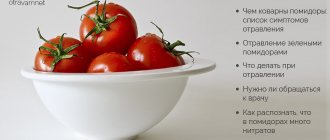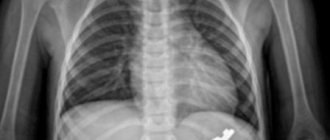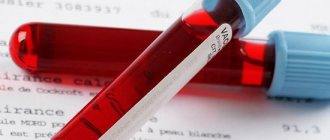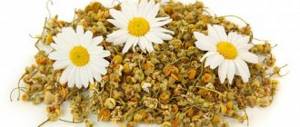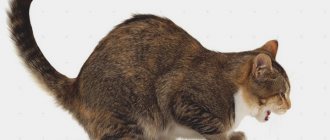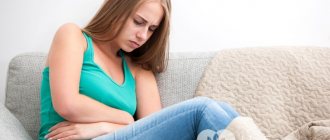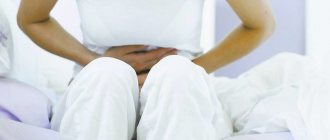05.04.2017
Bowel upset occurs quite often in adults. Constipation can occur while taking antibiotics, due to poor diet, or lack of physical activity. Colon cleansing may be necessary before surgery or diagnostic tests. You need to know how to cause diarrhea at home and in cases where the body is threatened by intoxication. Toxins that accumulate in feces are carried throughout the body, causing poisoning, allergies, and weakening of protective functions.
Need for forced diarrhea
There are many reasons when a person is forced to resort to manipulation to provoke loose stools. Most often, such abnormalities in the body include constipation. Difficulty passing stool is a concern because it can lead to disappointing consequences. Chronic constipation develops:
- inflammatory process in the colon or sigmoid colon;
- hepatitis;
- neoplasms in the digestive tract with degeneration into oncology;
- hemorrhoids with bleeding cracks.
For the purpose of periodically cleansing the body, experts recommend inducing forced diarrhea, which will prevent clogging of the villi lining the gastrointestinal tract cavity. In this course of circumstances, incomplete absorption of nutrients necessary for the body to function normally occurs. Accumulating toxins enter the bloodstream in a short time, affecting systems and organs, worsening the general condition of a person.
It is diarrhea that helps remove excess fluid along with dangerous and harmful components. The described procedure is indicated for people diagnosed with obesity. It is highly effective in losing weight, but you should not abuse it.
Treatment methods
Therapy is carried out symptomatically, taking into account the primary causes of dyspeptic disorders. In case of stool retention, laxatives are prescribed, diarrhea is treated with fixatives. Patients need to follow a special diet and give up bad habits. For psychological diseases, antidepressants, sedatives, and antispasmodics are prescribed.
Acute inflammation is treated with antibiotics, the intestinal microflora is normalized with probiotics, and colloidal solutions, vitamins, and antioxidants are infused to restore the electrolyte balance of the blood. Pain syndrome is relieved with anesthetics; antifoam agents and enterosorbents are prescribed for bloating and distension.
Medications
If, after constipation, diarrhea occurs, frequent bowel movements with liquid feces occur, antidiarrheal drugs help normalize stool:
- Loperamide.
- Loflatil.
- Stoperan.
- Uzara.
- Diaremix.
For diarrhea and disturbances in the composition of microflora, Biolact, Linex, Lactium are used. Patients with inflammatory bowel disease often ask what to do if they develop uncontrollable diarrhea. Such patients are prescribed Salofalk, Asakol. If stool disorder is caused by intoxication of the body, it normalizes peristalsis, removes toxins Nifuroxazide, Fthalazol, Entoban, Sorbex.
Laxatives for constipation:
When constipation and diarrhea are a problem at the same time, dysbiosis is diagnosed, probiotics are used - Bifidumbacterin, Hilak forte, Biosporin. The drugs are effective for irritable bowel and psychogenic disorders.
Note! If there are contraindications to the use of oral laxatives, you can use rectal suppositories, microenemas, and give cleansing enemas with an oil solution.
If you are worried about spastic constipation and diarrhea, intestinal colic, flatulence, antispasmodics help relieve the condition: No-shpa, Spazmalgon. Antifoam agents (Espumizan), enterosorbents (activated carbon, Laktofiltrum), digestive enzymes (Pancreatin, Mezim forte) reduce bloating.
Changing your diet
For chronic constipation and inflammatory bowel diseases, patients are prescribed a special diet (table No. 3). The basis of the diet consists of dishes that stimulate intestinal peristalsis, excluding foods that can cause fermentation and increased gas formation.
Important! If you have constipation or diarrhea, you must stay hydrated. You should drink at least 1.5 liquids per day.
If the stool is hard, the following products help strengthen the evacuation function of the intestines during constipation:
- dried fruits – dried apricots, prunes;
- fermented milk products – curdled milk, yogurt;
- pears, plums, melons, apricots, peaches;
- buckwheat, wheat groats;
- broccoli, white cabbage;
- pumpkin, tomatoes;
- flax seeds;
- walnuts.
Ways to provoke loose stools
Diarrhea can be caused at home using various pharmaceutical medications. In this case, recipes from traditional medicine also have a positive effect. In the most advanced cases, a person needs qualified assistance provided within the walls of a hospital. The most common methods:
- conducting enemas (you can do microenemas);
- correction of the diet and consumption of a limited list of products;
- the use of drugs that have a laxative effect.
When choosing an appropriate method that will provoke artificial defecation as quickly as possible, but with a gentle effect on the body, you need to consult a specialist. It must be remembered that medications and “grandmother’s” advice may have a number of contraindications.
Dangers of Overdose
Abuse of laxatives can cause irreparable harm to the internal organs and systems of the human body.
A common reason for self-use of drugs in this group is the desire to cleanse the body of toxins and lose weight in a short time. The following symptoms are typical for an acute overdose of laxatives:
- abdominal cramps;
- constipation;
- persistent diarrhea;
- nausea;
- general malaise;
- allergic skin reactions;
- decrease in blood pressure.
Stool liquefaction with medications
The practice of using laxatives from pharmaceutical drugs is common. They are distinguished by the fact that they provide a positive result very quickly and 100% of the time. Medications are prescribed only by a doctor; patients are often prescribed the following items:
- Linex for soft emptying, which causes a number of difficulties. It is recommended for use in cases of constipation, diarrhea, and severe dysbacteriosis. The dosage is selected individually in accordance with the attached instructions.
- Duphalac syrup, which is based on lactulose. It promotes peristalsis in the intestines, thereby causing diarrhea. The product is well tolerated even in childhood.
- Dulcolax is a laxative medication in tablet form that has a mild effect on the intestines. It is usually prescribed for chronic problematic constipation, on the eve of a gastrointestinal tract examination, before surgical operations.
- Glycerin-based suppositories are allowed to be used by patients of any age category. They do not cause deterioration of the condition, there are no side effects, so this remedy is used by pregnant women and breastfeeding mothers.
- Microlax helps to quickly liquefy stool. This is a completely ready-to-use microenema that eliminates constipation within 10-15 minutes after its use. There are no age restrictions.
- Bisacodyl has a powerful effect on intestinal motility. In addition to neutralizing constipation, this drug is recommended for use during preparation for surgery and undergoing a colonoscopy examination.
This is not an exhaustive list of medications, but each specific case should be examined by a doctor and the optimal therapy should be selected in accordance with the person’s age and health characteristics.
What is irritable bowel syndrome?
For a long time, it was believed that IBS was a functional disorder. This means that if you insert an endoscope into the intestine and look at its mucous membrane from the inside, the doctor will not see anything: no erosions, no hyperemia, no edema, no polyps, no diverticula (protrusions), i.e. no signs of inflammation, damage or other changes.
And despite this, regularly, at least once a week for many months, a person experiences abdominal pain associated with defecation, a change in the frequency or shape of stool. Sometimes the pain is as severe as during surgical pathology.
But research in recent years shows that patients with IBS have mild inflammation of the intestinal mucosa, which can only be detected under an electron microscope. So this disease does not quite fit into the usual understanding of a functional disorder.
IBS is extremely common. It occurs in 10-20% of the adult population. More often in women.
The saddest thing is that approximately two thirds of patients do not seek medical help at all.
If so, where do they go?
Right! To pharmacy!
This means that the chief manager’s task is to suspect this disease, conduct a competent consultation, offer a set of symptomatic remedies and convince the buyer to see a doctor so that, if necessary, he can prescribe drugs that act on the cause of the disease, and not on its consequence.
Appearing contraindications
Almost all laxative medications provoke loose stools in a short time, but do not forget about the prohibitions indicated in the instructions attached to them. For example, some drugs cannot be used during pregnancy, if there are ulcerative lesions in the stomach. It is strictly unacceptable to use laxatives at the slightest suspicion of internal bleeding. A contraindication to inducing diarrhea is the presence of hemorrhoids.
Medicines that have an irritating effect are not intended for long-term use. They should not be used in case of pathological processes in the digestive system or the manifestation of painful sensations in the abdomen.
Pharmacological properties
Depending on the mechanism of action, there are 3 main groups of laxatives:
- chemically irritating receptors located on the intestinal mucosa (senna, castor oil, rhubarb root - plant origin, phenolphthalein - synthetic);
- osmotic (Macrogol, Microlax, magnesia, etc.);
- intestinal fillers that provoke mechanical irritation of the intestinal walls by increasing the volume of feces (Methylcellulose, seaweed, etc.);
- thinning, softening (sunflower oil, almond oil, etc.).
The main effect of most laxatives is to slow down the absorption of liquid and salt in various parts of the intestine. Depending on the site of action, stimulating drugs are distinguished:
- large intestine;
- small intestine;
- all departments.
Based on the nature of their therapeutic effects, pharmaceuticals are divided into 3 groups:
- laxatives (cause stools of normal consistency);
- mild laxatives (mushy stools);
- carry-on, or drastic (form liquid stools).
Elimination of constipation occurs due to improved intestinal motility.
Benefits of prebiotics
Medicines belonging to this group will help relieve constipation quickly and without harm to health. They are often prescribed to pregnant women for problems with stool, and are useful in the postpartum period.
The peculiarity of prebiotics is that they help restore beneficial microflora in the gastrointestinal tract, effectively remove toxins, thereby ensuring normal absorption of beneficial substances. Such drugs are recommended for use for chronic and acute constipation in adults and children. The direct purpose is to detect dysbiosis in humans.
Diseases of the rectum
- Alternating diarrhea and constipation can be a sign of a serious disease - rectal cancer. Rectal cancer is a malignant tumor that develops from the cells lining the intestine. A characteristic feature of the disease is alternating constipation and diarrhea. When defecating, blood and mucus are released from the anus. The patient suffers from false urge to defecate and pain in the rectum.
- The appearance of constipation alternating with diarrhea may indicate the development of proctitis or paraproctitis. Proctitis is an inflammation of the rectal mucosa. The acute form of the disease appears suddenly. The patient experiences pain in the perineum, burning and a feeling of heaviness in the rectum. Body temperature rises to 38°C, weakness appears, and stool becomes unstable. If blood or blood clots come out of the rectum along with diarrhea, the process has acquired an ulcerative-necrotic character. With paraproctitis, purulent inflammation of the tissues surrounding the rectum is observed. The patient's body temperature rises above 38°C, severe pain appears in the lower abdomen and rectal area. There is a simultaneous disorder of stool and urination. The urge to defecate becomes frequent and painful.
Diarrhea without medication
Often patients are afraid to solve the problem with stool and get the expected result through medications, which, due to contraindications and side effects, can be harmful to health. In such situations, it is better to use traditional medicine that helps dilute stool without the participation of pharmacological substances.
A simple but effective method is known. It is recommended to take 3-4 tablespoons of vegetable oil on an empty stomach in the morning. Within about an hour the body will react to such a “provocation”. By the way, a similar method is often used for obesity. An enema is a reliable assistant when it is necessary to induce diarrhea. This is a very common and well-known method that can be used on adult patients and children.
Usually an enema is given in the morning immediately after waking up; in some cases it is recommended to use it before a night's rest. Contraindications to the procedure are noted. In particular, Esmarch's mug is prohibited for people who are going through a rehabilitation period after undergoing surgery. An enema should not be used for chronic intestinal diseases or bleeding in any part of the gastrointestinal tract. In other cases, this option for solving the problem at home is completely safe and effective.
Adverse reactions from internal organs and systems
In case of an overdose or incorrect selection of medication, pathological manifestations may develop:
- allergic reaction in the form of rash, skin hyperemia;
- avitaminosis;
- chronic diarrhea, which results in electrolyte imbalance;
- functional disorders of the small intestine, accompanied by a decrease in the absorption capacity of this section;
- colitis;
- melanosis of the large intestine;
- intestinal obstruction;
- nausea, vomiting.
With prolonged use, itching in the anus is felt, associated with constant mechanical irritation of the anus during bowel movements. Long-term intake of petrolatum oil orally contributes to the development of cancer of the digestive tract.
In severe cases, the liver becomes inflamed. Taking some fat-containing laxatives by bedridden patients can cause fatty inflammation of the lungs (in bedridden patients, fat-based medicine often gets into the respiratory tract when they try to swallow).
Products that have a laxative effect
A properly selected diet will help cause diarrhea. It should include food with laxative properties. Such products do not cause the slightest harm to the human body, and they have excellent taste. Elimination of constipation is guaranteed by introducing the following components into the diet:
- Citrus fruits not only have a strong and easily recognizable taste, but also cleanse the intestines well, having a laxative effect. The uniqueness of such fruits lies in their ability to remove toxins. But so that the benefits you receive do not turn into a problem, it is recommended to adhere to the norm of citrus fruit consumption. If you eat them in large quantities, you may develop an allergy.
- Among dried fruits, you should give preference to prunes, which have pronounced properties on the principle of a laxative medicine. The product contains large quantities of minerals and vitamins, creating favorable microflora in the digestive tract.
- Vegetables are good for constipation. Intentional stool upset is achieved by eating raw cabbage, herbs, tomatoes, asparagus, and garlic, from which you can make a salad. Such vegetables contain vitamins and fiber in large quantities.
- Severe diarrhea often makes itself felt after eating spicy foods. Food well seasoned with spices normalizes the functioning of the digestive tract, which is why gastric juice is intensively produced.
- Cucumber pickle quickly causes diarrhea. When you drink 3 glasses of this drink throughout the day, powerful cleansing occurs.
By correctly consuming the indicated products, you can completely stop taking laxative medications. But do not forget about allergic reactions, which manifest themselves individually when eating a particular food and have more serious consequences than temporary constipation.
Chronic cholecystitis
Constipation after diarrhea may be a sign of the development of chronic cholecystitis. Cholecystitis is an inflammation of the gallbladder, in which the processes of bile formation and bile excretion are disrupted. The chronic form of the disease in most cases develops after the formation of stones in the organ. Stones cause damage and inflammation to the walls of the gallbladder.
- diarrhea in chronic cholecystitis often appears after eating fatty foods;
- when the gallbladder is inflamed, the process of digesting fatty foods is disrupted;
- During diarrhea, stool has a mushy consistency and a strong, foul odor.
Chronic cholecystitis is characterized by pain and a feeling of heaviness in the right hypochondrium or in the area above the navel. Unpleasant sensations appear within the next hour after eating. If the foods included fried, smoked and fatty foods, the pain will be more pronounced.
Then the patient begins to suffer from constipation.
An attack of cholecystitis can be triggered by hypothermia, shaking in transport, stress and excessive physical exertion.
Diet
An appropriately selected diet can normalize or weaken stools. Drinking liquids and plant fiber in large quantities will help to cause diarrhea quickly at home.
During the diet, foods should be enriched with minerals and vitamins, which are found in sufficient quantities in cereals, dried fruits, vegetables and fruits. As for fermented milk products, they stimulate the restoration of intestinal microflora. Constipation will not be caused by eating the following foods:
- milk porridge (oatmeal, buckwheat);
- assorted bakery products based on rye and buckwheat flour;
- vegetable oil, butter;
- juices and soups from vegetables and fruits;
- pasta.
The normal functioning of the gastrointestinal tract without problems with stool is ensured by protection from overeating and hunger; it is very important to maintain the correct temperature of the food consumed.
Proper nutrition
You can effectively cleanse the body with food containing dietary fiber. In another way, they are also called fiber or cellulose. A large amount of fiber is found in fruits and vegetables; wheat bran is especially rich in dietary fiber. When fiber combines with water, the bran swells. As a result, feces increase in volume and become looser. All these factors bring defecation closer. Bran can be bought at a pharmacy and taken according to the instructions. Treatment with bran does not give immediate results, but constant consumption of fiber in food stimulates normal intestinal function. When using bran, be sure to wash it down with water.
Flax seeds contain a large amount of fiber and Omega-3 fatty acids. They are added to dairy drinks and juices, smoothies, and vegetarian soups.
Sea kale, simulated caviar from agar-agar, rhubarb and preparations made from it have a laxative effect.
Toxins from the intestinal walls are perfectly eliminated with the help of fruit and vegetable juices. You can cleanse your body with drinks made from orange, apple, watermelon, grapefruit, beets, apricots, and grapes. Juices are prepared at home using a juicer; it is not advisable to use store-bought juices.
Carrots, plums, avocados, peppers, red and green apples, lemon juice, celery, melon, pears, sauerkraut and fresh cabbage, pumpkin, tomatoes, pineapple, lettuce, sunflower and pumpkin seeds, and nuts will help cause diarrhea.
Dried fruits have a laxative effect: prunes, raisins, dried apricots, figs.
It is necessary to consume fermented milk products, such as kefir. For some people, fresh milk has a laxative effect.
Vegetable oil taken on an empty stomach helps intestinal motility. The oil can be eaten in salads, as long as it is not thermally processed.
Coffee drinks have a certain laxative effect. For greater effectiveness, you can add milk to your coffee.
Herbs help in cleansing the intestines: parsley, beet tops, dill, basil, nettle. Decoctions and medicinal tinctures are prepared from dandelion, senna leaves, mint, horsetail, and knotweed.
Products with laxative effects can cause diarrhea. Sometimes diarrhea occurs against the background of psycho-emotional shock, so before an important event (a trip to the maternity hospital, a trip, to the surgery department), diarrhea comes on its own, without additional stimulation.
If diarrhea is urgently needed, you can try a diet consisting entirely of drinks. The whole day you need to take only juices or kefir, excluding the consumption of other liquids and food (including tea and water).
Natural remedies
To ensure diarrhea, you can use herbal natural ingredients, but only after prior consultation with your doctor. The expected irritation of the walls in the intestines occurs under the influence of herbs with anthraquinones. Among the potent plants with a powerful chemical composition, the following are noted:
- zhoster;
- alder buckthorn;
- Alexandrian leaf, etc.
Pregnant women and young children should not take herbs uncontrollably. If the patient has chronic diseases in any part of the digestive tract, plants can provoke the development of complications.
Prevention
To avoid prolonged diarrhea, follow the rules for preventing the condition:
- maintain personal hygiene to prevent infection;
- wash vegetables and fruits thoroughly;
- follow the rules for heat treatment of eggs, meat and fish;
- treat chronic diseases in a timely manner;
- try exotic dishes with caution;
- avoid allergens;
- when treating with antibiotics, take additional medications that eliminate dysbacteriosis;
- do not eat spoiled foods, follow storage rules;
- Always pay attention to expiration dates when purchasing products.
Prolonged diarrhea in adults does not occur out of nowhere, so it is important to promptly detect the root cause of the unpleasant symptom, which will avoid dangerous complications. Diarrhea should not be ignored; it can be fatal.
Need for medical care
The use of laxatives in some cases does not give the expected result, and the patient’s condition only worsens. The situation is quite serious, you need to urgently consult a doctor if a number of signs appear:
- high temperature, accompanied by vomiting and nausea;
- the presence of persistent constipation even while taking laxative medications;
- blood clots and purulent accumulations are present in the stool;
- acute painful spasms in the epigastrium.
It is important to have a person examined in a timely manner followed by a diagnosis. If there are tumors in the gastrointestinal tract, forcing diarrhea will only worsen your health. Constipation as a result of pathologies of the digestive system is subject to careful observation with immediate treatment.
Why does IBS occur?
There is no exact answer to this question yet. And there are hypotheses.
There are two most popular ones.
Hypothesis 1. Post-infectious. We have noticed that irritable bowel syndrome often develops in those who have had an intestinal infection. As a result, of colon receptors to common irritants, such as certain foods, increases
Previously, a person could eat, for example, half a kilo of cherries in one sitting and feel great, but now 2 unfortunate berries cause a real storm in the intestines.
Hypothesis 2. Neurogenic.
In 80% of cases, IBS occurs against a background of stress in people who are emotionally unstable, prone to despondency, and with an increased level of anxiety and restlessness.
All this disrupts the interaction between the brain and the intestines, leading to changes in the motility of the digestive tract, excessive bacterial growth in the intestines, flatulence, pain, constipation or diarrhea.
Serotonin plays an important role in this, because 95% of it is produced in the gastrointestinal tract, not in the brain. And it is responsible for motility, gastrointestinal tone, intestinal response to various irritants, including pathogenic bacteria, the production of inflammatory mediators by immune cells, the perception of pain, and the feeling of satiety.
